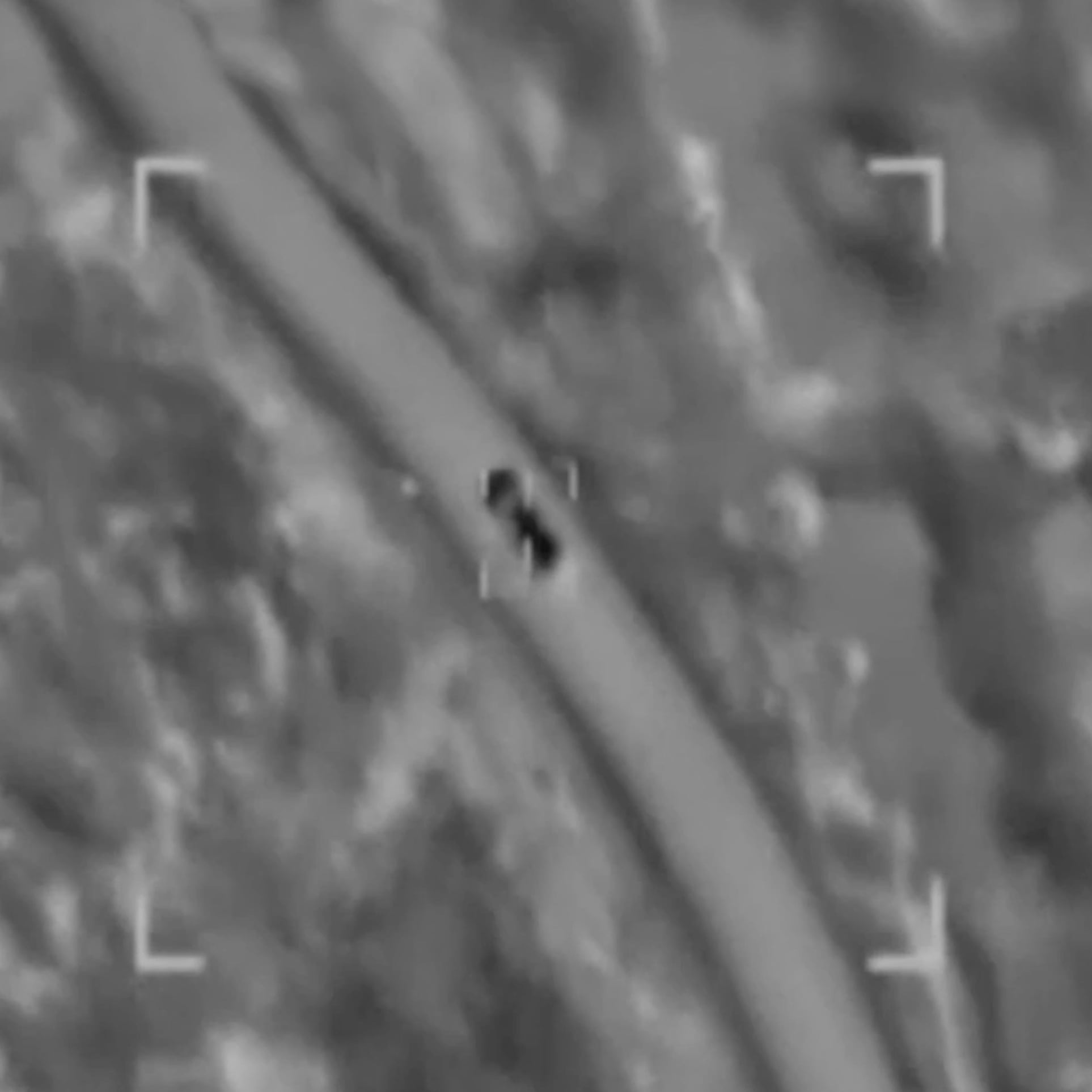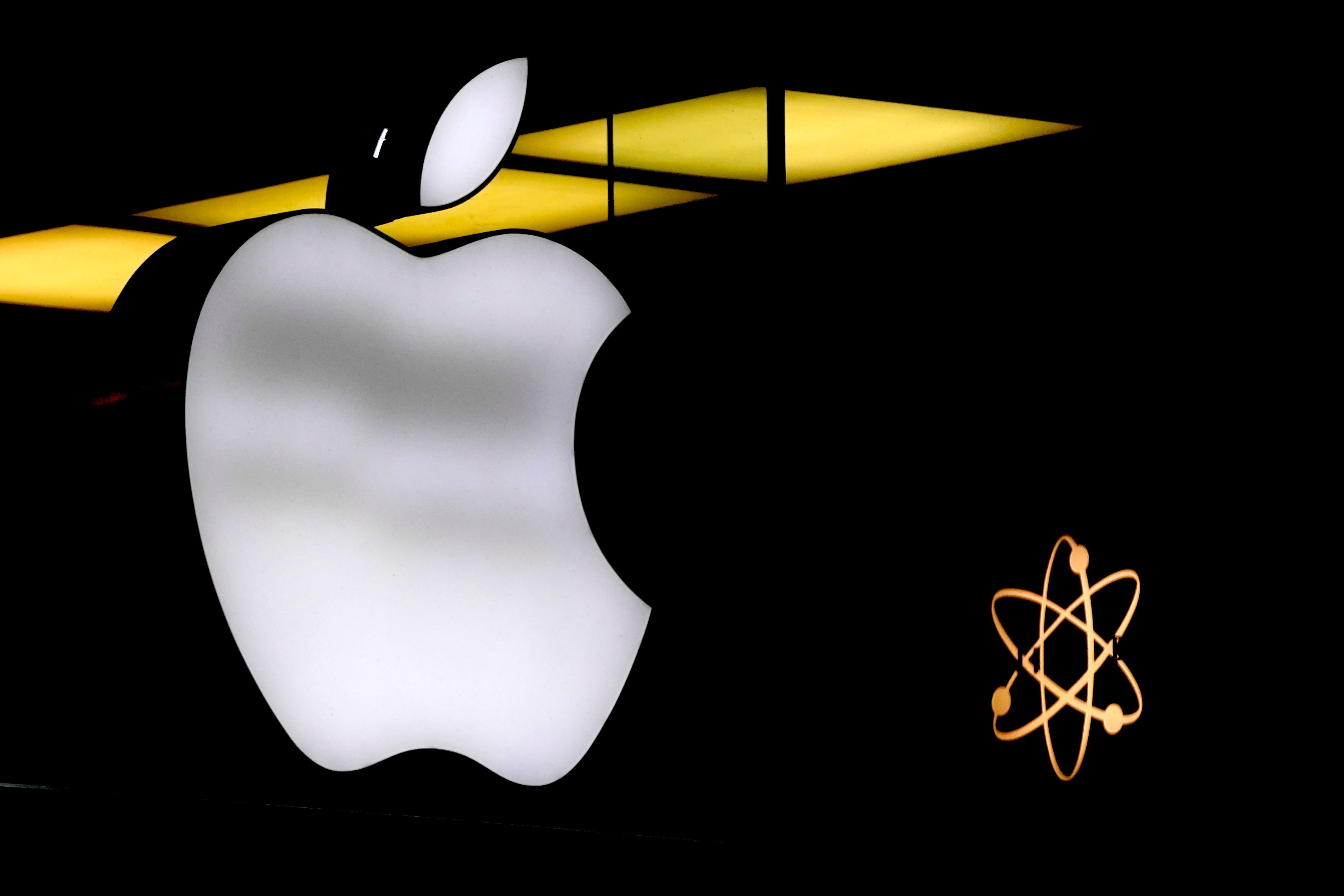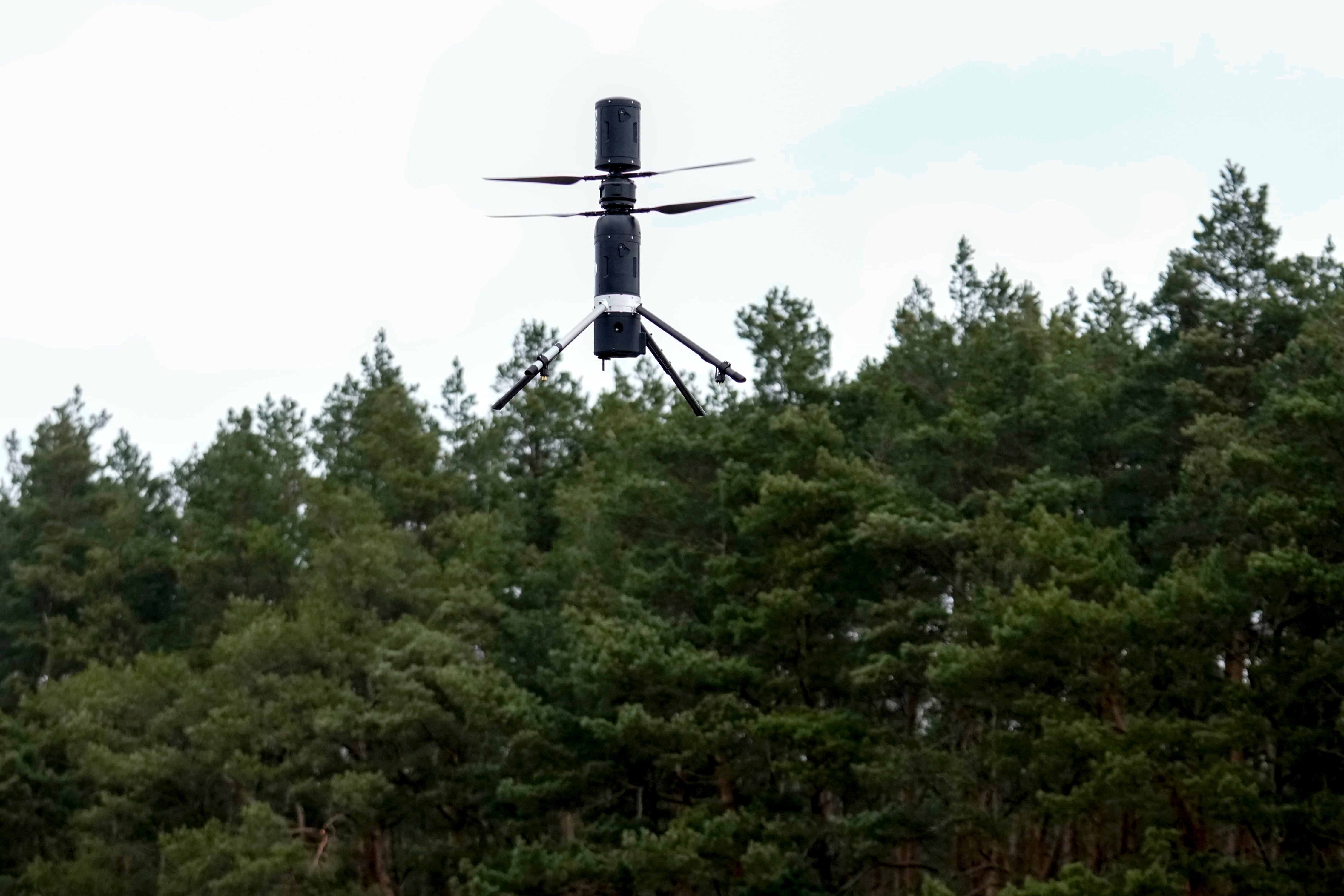TEL AVIV, Israel (AP) — U.S. tech giants have quietly empowered Israel to track and kill many more alleged militants more quickly in Gaza and Lebanon through a sharp spike in artificial intelligence and computing services. But the number of civilians killed has also soared, fueling fears that these tools are contributing to the deaths of innocent people.
Militaries have for years hired private companies to build custom autonomous weapons. However, Israel's recent wars mark a leading instance in which commercial AI models made in the United States have been used in active warfare, despite concerns that they were not originally developed to help decide who lives and who dies.
The Israeli military uses AI to sift through vast troves of intelligence, intercepted communications and surveillance to find suspicious speech or behavior and learn the movements of its enemies. After a deadly surprise attack by Hamas militants on Oct. 7, 2023, its use of Microsoft and OpenAI technology skyrocketed, an Associated Press investigation found. The investigation also revealed new details of how AI systems select targets and ways they can go wrong, including faulty data or flawed algorithms. It was based on internal documents, data and exclusive interviews with current and former Israeli officials and company employees.
“This is the first confirmation we have gotten that commercial AI models are directly being used in warfare,” said Heidy Khlaaf, chief AI scientist at the AI Now Institute and former senior safety engineer at OpenAI. “The implications are enormous for the role of tech in enabling this type of unethical and unlawful warfare going forward.”
The rise of AI
As U.S. tech titans ascend to prominent roles under President Donald Trump, the AP’s findings raise questions about Silicon Valley’s role in the future of automated warfare. Microsoft expects its partnership with the Israeli military to grow, and what happens with Israel may help determine the use of these emerging technologies around the world.
The Israeli military’s usage of Microsoft and OpenAI artificial intelligence spiked last March to nearly 200 times higher than before the week leading up to the Oct. 7 attack, the AP found in reviewing internal company information. The amount of data it stored on Microsoft servers doubled between that time and July 2024 to more than 13.6 petabytes — roughly 350 times the digital memory needed to store every book in the Library of Congress. Usage of Microsoft’s huge banks of computer servers by the military also rose by almost two-thirds in the first two months of the war alone.
Israel’s goal after the attack that killed about 1,200 people and took over 250 hostages was to eradicate Hamas, and its military has called AI a “game changer” in yielding targets more swiftly. Since the war started, more than 50,000 people have died in Gaza and Lebanon and nearly 70% of the buildings in Gaza have been devastated, according to health ministries in Gaza and Lebanon.
The AP’s investigation drew on interviews with six current and former members of the Israeli army, including three reserve intelligence officers. Most spoke on condition of anonymity because they were not authorized to discuss sensitive military operations.
The AP also interviewed 14 current and former employees inside Microsoft, OpenAI, Google and Amazon, most of whom also spoke anonymously for fear of retribution. Journalists reviewed internal company data and documents, including one detailing the terms of a $133 million contract between Microsoft and Israel’s Ministry of Defense.
The Israeli military says its analysts use AI-enabled systems to help identify targets but independently examine them together with high-ranking officers to meet international law, weighing the military advantage against the collateral damage. A senior Israeli intelligence official authorized to speak to the AP said lawful military targets may include combatants fighting against Israel, wherever they are, and buildings used by militants. Officials insist that even when AI plays a role, there are always several layers of humans in the loop.
“These AI tools make the intelligence process more accurate and more effective,” said an Israeli military statement to the AP. “They make more targets faster, but not at the expense of accuracy, and many times in this war they’ve been able to minimize civilian casualties.”
The Israeli military declined to answer detailed written questions from the AP about its use of commercial AI products from American tech companies.
Microsoft declined to comment for this story and did not respond to a detailed list of written questions about cloud and AI services provided to the Israeli military. In a statement on its website, the company says it is committed “to champion the positive role of technology across the globe.” In its 40-page Responsible AI Transparency Report for 2024, Microsoft pledges to manage the risks of AI throughout development “to reduce the risk of harm,” and does not mention its lucrative military contracts.
Advanced AI models are provided through OpenAI, the maker of ChatGPT, through Microsoft’s Azure cloud platform, where they are purchased by the Israeli military, the documents and data show. Microsoft has been OpenAI's largest investor. OpenAI said it does not have a partnership with Israel's military, and its usage policies say its customers should not use its products to develop weapons, destroy property or harm people. About a year ago, however, OpenAI changed its terms of use from barring military use to allowing for “national security use cases that align with our mission.”
The human toll of AI
It’s extremely hard to identify when AI systems enable errors because they are used with so many other forms of intelligence, including human intelligence, sources said. But together they can lead to wrongful deaths.
In November 2023, Hoda Hijazi was fleeing with her three young daughters and her mother from clashes between Israel and Hamas ally Hezbollah on the Lebanese border when their car was bombed.
Before they left, the adults told the girls to play in front of the house so that Israeli drones would know they were traveling with children. The women and girls drove alongside Hijazi’s uncle, Samir Ayoub, a journalist with a leftist radio station, who was caravanning in his own car. They heard the frenetic buzz of a drone very low overhead.
Soon, an airstrike hit the car Hijazi was driving. It careened down a slope and burst into flames. Ayoub managed to pull Hijazi out, but her mother — Ayoub’s sister — and the three girls — Rimas, 14, Taline, 12, and Liane, 10 — were dead.
Before they left their home, Hijazi recalled, one of the girls had insisted on taking pictures of the cats in the garden “because maybe we won’t see them again.”
In the end, she said, “the cats survived and the girls are gone.”
Video footage from a security camera at a convenience store shortly before the strike showed the Hijazi family in a Hyundai SUV, with the mother and one of the girls loading jugs of water. The family says the video proves Israeli drones should have seen the women and children.
The day after the family was hit, the Israeli military released video of the strike along with a package of similar videos and photos. A statement released with the images said Israeli fighter jets had “struck just over 450 Hamas targets." The AP’s visual analysis matched the road and other geographical features in the Israeli military video to satellite imagery of the location where the three girls died, 1 mile (1.7 kilometers) from the store.
An Israeli intelligence officer told the AP that AI has been used to help pinpoint all targets in the past three years. In this case, AI likely pinpointed a residence, and other intelligence gathering could have placed a person there. At some point, the car left the residence.
Humans in the target room would have decided to strike. The error could have happened at any point, he said: Previous faulty information could have flagged the wrong residence, or they could have hit the wrong vehicle.
The AP also saw a message from a second source with knowledge of that airstrike who confirmed it was a mistake, but didn’t elaborate.
A spokesperson for the Israeli military denied that AI systems were used during the airstrike itself, but refused to answer whether AI helped select the target or whether it was wrong. The military told the AP that officials examined the incident and expressed “sorrow for the outcome.”
How it works
Microsoft and the San Francisco-based startup OpenAI are among a legion of U.S. tech firms that have supported Israel’s wars in recent years.
Google and Amazon provide cloud computing and AI services to the Israeli military under “Project Nimbus,” a $1.2 billion contract signed in 2021 when Israel first tested out its in-house AI-powered targeting systems. The military has used Cisco and Dell server farms or data centers. Red Hat, an independent IBM subsidiary, also has provided cloud computing technologies to the Israeli military, and Palantir Technologies, a Microsoft partner in U.S. defense contracts, has a “strategic partnership” providing AI systems to help Israel’s war efforts.
Google said it is committed to responsibly developing and deploying AI “that protects people, promotes global growth, and supports national security.” Dell provided a statement saying the company commits to the highest standards in working with public and private organizations globally, including in Israel. Red Hat spokesperson Allison Showalter said the company is proud of its global customers, who comply with Red Hat's terms to adhere to applicable laws and regulations.
Palantir, Cisco and Oracle did not respond to requests for comment. Amazon declined to comment.
The Israeli military uses Microsoft Azure to compile information gathered through mass surveillance, which it transcribes and translates, including phone calls, texts and audio messages, according to an Israeli intelligence officer who works with the systems. That data can then be cross-checked with Israel’s in-house targeting systems and vice versa.
He said he relies on Azure to quickly search for terms and patterns within massive text troves, such as finding conversations between two people within a 50-page document. Azure also can find people giving directions to one another in the text, which can then be cross-referenced with the military’s own AI systems to pinpoint locations.
The Microsoft data AP reviewed shows that since the Oct. 7 attack, the Israeli military has made heavy use of transcription and translation tools and OpenAI models, although it does not detail which. Typically, AI models that transcribe and translate perform best in English. OpenAI has acknowledged that its popular AI-powered translation model Whisper, which can transcribe and translate into multiple languages including Arabic, can make up text that no one said, including adding racial commentary and violent rhetoric.
“Should we be basing these decisions on things that the model could be making up?” said Joshua Kroll, an assistant professor of computer science at the Naval Postgraduate School in Monterey, California, who spoke to the AP in his personal capacity, not reflecting the views of the U.S. government.
The Israeli military said any phone conversation translated from Arabic or intelligence used in identifying a target has to be reviewed by an Arabic-speaking officer.
Errors can still happen for many reasons involving AI, said Israeli military officers who have worked with the targeting systems and other tech experts. One intelligence officer said he had seen targeting mistakes that relied on incorrect machine translations from Arabic to Hebrew.
The Arabic word describing the grip on the launch tube for a rocket-propelled grenade is the same as the word for “payment.” In one instance the machine translated it wrong, and the person verifying the translation initially didn’t catch the error, he said, which could have added people speaking about payments to target lists. The officer was there by chance and caught the problem, he said.
Intercepted phone calls tied to a person’s profile also include the time the person called and the names and numbers of those on the call. But it takes an extra step to listen to and verify the original audio, or to see a translated transcript.
Sometimes the data attached to people’s profiles is wrong. For example, the system misidentified a list of high school students as potential militants, according to the officer. An Excel spreadsheet attached to several people’s profiles titled “finals” in Arabic, contained at least 1,000 students’ names on an exam list in one area of Gaza, he said. This was the only piece of incriminating evidence attached to people’s files, he said, and had he not caught the mistake, those Palestinians could have been wrongly flagged.
He said he also worried that young officers, some still younger than 20, under pressure to find targets quickly with the help of AI would jump to conclusions.
AI alone could lead to the wrong conclusion, said another soldier who worked with the targeting systems. For example, AI might flag a house owned by someone linked to Hamas who does not live there. Before the house is hit, humans must confirm who is actually in it, he said.
“Obviously there are things that I live peacefully with and things that I could have done better in some targeted attacks that I’m responsible for,” the soldier told the AP. “It’s war, things happen, mistakes happen, we are human.”
Tal Mimran served 10 years as a reserve legal officer for the Israeli military, and on three NATO working groups examining the use of new technologies, including AI, in warfare. Previously, he said, it took a team of up to 20 people a day or more to review and approve a single airstrike. Now, with AI systems, the military is approving hundreds a week.
Mimran said over-reliance on AI could harden people’s existing biases.
“Confirmation bias can prevent people from investigating on their own,” said Mimran, who teaches cyber law policy. “Some people might be lazy, but others might be afraid to go against the machine and be wrong and make a mistake.”
Deep ties
Among U.S. tech firms, Microsoft has had an especially close relationship with the Israeli military spanning decades.
That relationship, alongside those with other tech companies, stepped up after the Hamas attack. Israel’s war response strained its own servers and increased its reliance on outside, third-party vendors, according to a presentation last year by the military’s top information technology officer. As she described how AI had provided Israel “very significant operational effectiveness” in Gaza, the logos of Microsoft Azure, Google Cloud and Amazon Web Services appeared on a large screen behind her.
“We’ve already reached a point where our systems really need it,” said Col. Racheli Dembinsky, commander of the Center of Computing and Information Systems, known by its Hebrew acronym, Mamram.
One three-year contract between Microsoft and the Israeli Ministry of Defense began in 2021 and was worth $133 million, making it the company's second largest military customer globally after the U.S., according to a document reviewed by the AP. The Israeli military is classified within Microsoft as an “S500” client, meaning that it gets top priority as one of the company's most important customers globally.
The Israeli military's service agreements with Microsoft include at least 635 individual subscriptions listed under specific divisions, units, bases or project code words. Subscription names reviewed by the AP included “Mamram” and “8200,” an elite intelligence unit known for its technological prowess.
One urgent Azure support ticket filed about two weeks after the Oct. 7 attack asked for delays of planned maintenance outages for the rest of the year due to the war, because any downtime could have “a direct impact on life-saving systems.” The request was flagged as being from “Glilot – 8200,” a highly secure army base that houses Unit 8200, responsible for clandestine operations, collecting signal intelligence and code decryption, cyber warfare and surveillance.
Records show Microsoft’s global Azure support team responded to about 130 direct requests from the Israeli military through the first 10 months of the war. Microsoft’s consulting services unit also works closely with Israel’s military, which represented half of that section’s overall revenue, an internal document said.
Within Israel, a team of at least nine Microsoft employees is dedicated to serving the military’s account. Among them is a senior executive who served 14 years in Unit 8200 and a former IT leader for military intelligence, according to their online resumes. Microsoft data is housed in server farms within two massive buildings outside Tel Aviv, enclosed behind high walls topped with barbed wire. Microsoft also operates a 46,000-square-meter corporate campus in Herzliya, north of Tel Aviv, and another office in Gav-Yam in southern Israel, which has displayed a large Israeli flag.
The Israel Defense Forces has long been at the forefront of deploying artificial intelligence for military use. In early 2021, it launched Gospel, an AI tool that sorts through Israel’s vast array of digitized information to suggest targets for potential strikes. It also developed Lavender, which uses machine learning to filter out requested criteria from intelligence databases and narrow down lists of potential targets, including people.
Lavender ranks people between 0 and 100 based on how likely it is they are a militant, said an intelligence officer who used the systems. The ranking is based on intelligence, such as the person’s family tree, if someone’s father is a known militant who served time, and intercepted phone calls, he said.
In May 2021, the Israeli military launched what Israeli intelligence officials described as their “First AI War,” an 11-day bombing campaign against Hamas. At the time, Israeli military officials described AI as a “force-multiplier,” allowing them to carry out far more airstrikes than in prior conflicts.
A 2021 post by the Israeli military also described the stakes surrounding the use of AI in war: “Unlike in the realms of AdTech and Gaming, wrong decisions in the realm of intelligence may cost lives,” it read. The same post described the military’s incorporation of AI approaches to analyze the emotional tone of communications, a technique experts have found can fail to pick slang, jargon or nuance in people’s speech.
Pushback from workers
The relationship between tech companies and the Israeli military also has ramifications in the U.S., where some employees have raised ethical concerns.
In October, Microsoft fired two workers for helping organize an unauthorized lunchtime vigil for Palestinian refugees at its corporate campus in Redmond, Washington. Microsoft said at the time that it ended the employment of some people “in accordance with internal policy” but declined to give details.
Hossam Nasr, one of the employees fired by Microsoft who works with the advocacy group No Azure for Apartheid, said he and former colleagues are pushing for Microsoft to stop selling cloud and AI services to the Israeli military.
“Cloud and AI are the bombs and bullets of the 21st century,” Nasr said. “Microsoft is providing the Israeli military with digital weapons to kill, maim and displace Palestinians, in the gravest moral travesty of our time.”
In April, Google fired about 50 of its workers over a sit-in at the company’s California headquarters protesting the war in Gaza.
Former Google software engineer Emaan Haseem was among those fired. Haseem said she worked on a team that helped test the reliability of a “sovereign cloud” — a secure system of servers kept so separate from the rest of Google’s global cloud infrastructure that even the company itself couldn't access or track the data it stores. She later learned through media reports that Google was building a sovereign cloud for Israel.
“It seemed to be more and more obvious that we are literally just trying to design something where we won’t have to care about how our clients are using it, and if they’re using it unfairly or unethically,” Haseem said.
Google said the employees were fired because they disrupted work spaces and made colleagues feel unsafe. Google did not respond to specific questions about whether it was contracted to build a sovereign cloud for the Israeli military and whether it provided restrictions on the wartime use of its AI models.
Gaza is now in an uneasy ceasefire. But recently, the Israeli government announced it would expand its artificial intelligence developments across all its military branches.
Meanwhile, U.S. tech titans keep consolidating power in Washington. Microsoft gave $1 million to Trump’s inauguration fund. Google CEO Sundar Pichai got a prime seat at the president’s inauguration. And OpenAI CEO Sam Altman met with the president on Trump’s second full day in office to talk up a joint venture investing up to $500 billion for AI infrastructure.
In a new book set to be published Tuesday, Palantir CEO Alexander Karp calls for the U.S. military and its allies to work closely with Silicon Valley to design, build and acquire AI weaponry, including “the unmanned drone swarms and robots that will dominate the coming battlefield.”
“The fate of the United States, and its allies, depends on the ability of their defense and intelligence agencies to evolve, and briskly,” Karp wrote, according to an advance copy obtained by the AP.
After OpenAI changed its terms of use last year to allow for national security purposes, Google followed suit earlier this month with a similar change to its public ethics policy to remove language saying it wouldn’t use its AI for weapons and surveillance. Google said it is committed to responsibly developing and deploying AI “that protects people, promotes global growth, and supports national security.”
As tech companies jockey for contracts, those who lost relatives still search for answers.
“Even with all this pain, I can’t stop asking: Why?” said Mahmoud Adnan Chour, the father of the three girls killed in the car in southern Lebanon, an engineer who was away at the time. “Why did the plane choose that car — the one filled with my children’s laughter echoing from its windows?”
___
Biesecker reported from Washington and Burke from San Francisco. AP reporters Abby Sewell and Sarah El Deeb in Beirut, Julia Frankel and Natalie Melzer in Jerusalem, Dake Kang in Beijing and Michael Liedtke in San Francisco contributed to this report.
___
Contact AP’s global investigative team at Investigative@ap.org or https://www.ap.org/tips/
___
The Associated Press receives financial assistance from the Omidyar Network to support coverage of artificial intelligence and its impact on society. AP is solely responsible for all content. Find AP’s standards for working with philanthropies, a list of supporters and funded coverage areas at AP.org.









